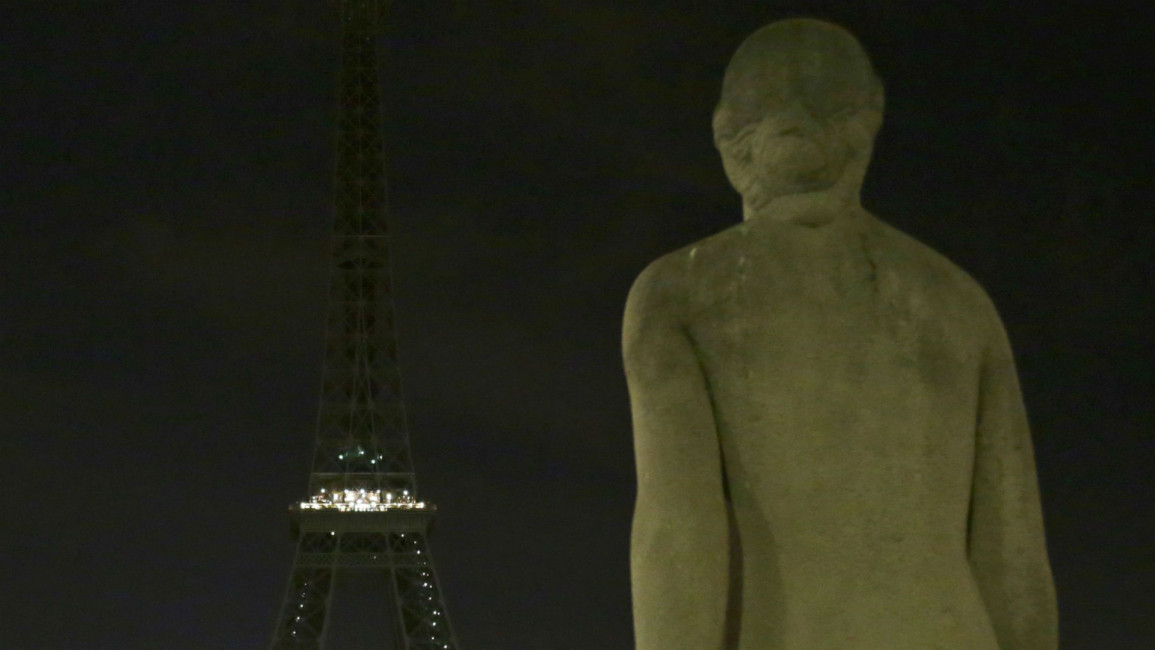
The forgotten state violence victims in Eiffel Tower solidarity
Seven people were killed and at least 48 others injured after three assailants went on a stabbing rampage and smashed into pedestrians with a van, before being shot dead by police.
The attack in London's nightlife hub unfolded in just a few minutes, bringing terror to a bustling part of the city.
"Tonight, at 12:45 am, I will turn my lights off to pay tribute to the victims of the London attack," the Eiffel Tower's Twitter feed said.
On social media, many had rejoiced the gesture, pointing out to the fact that lights were also out for Cairo, Baghdad and Kabul in solidarity.
Some highlighted the selective humanity, saying “lights should be off every day”, as tragedies occur on a daily basis.
Many more had mocked the gesture, emphasising its futility in deterring such attacks, as a cliché virtue signal which in reality has no tangible effect.
Despite the fact that turning off lights will do nothing to deter violent attacks, similarly to changing a profile photo on social media, or changing the colours of the layout of a website, condemning Paris on such grounds is harsh.
Turning off the lights of the Eiffel Tower is not meant to be a form of strategic deterrence, but a commendable humanitarian gesture in a symbol of solidarity and respect.
Lost victims of state brutality
When looking at the events that inspired turning off the Eiffel Tower's lights, a pattern seems to emerge. All of the events in which Paris reacted to were forms of violence instigated by non-state actors of an Islamist nature that had gone viral in the media.
The example of Baghdad exemplifies this. Lights were turned off in respect for victims of an IS-claimed car bombing which struck a Baghdad ice-cream shop.
Iraq, however is wrecked with daily violence and instability, after the US-led invasion of 2003. Solidarity with victims of the illegal and illegitimate war seem to be absent.
The Eiffel Tower’s lights were also turned off after an IS-claimed explosion in Kabul, which killed 90 people, but when five were shot dead by Afghan security officers for protesting against the Afghan government for the worsening security situation, the continued tragedy was met by silence.
Towards the end of last month, the Eiffel Tower had also turned its lights off in respect for those killed in Egypt’s attack when masked gunmen attacked a bus carrying Coptic Christians.
However, Paris continues to enjoy trade deals with the suppressive Sisi regime which is known for its abysmal human rights abuses against the Egyptian people - including the Coptic population, and a counter-terrorist policy that puts Egyptians at risk.
| Read also: Coptic Christians – Egypt's forsaken community |
It is not only non-state actors that perpetrate acts of violence, and violence from non-state actors must not over-ride the violence from state actors.
From expressing solidarity, to changing definitions of terms in conflict like ‘terrorism’ to include the actions of states, as long as we are less likely to show solidarity with victims of state violence, governments, who arguably have a monopoly on violence, would feel as though they are able to instil bloodsheds in homes and societies without accountability.




